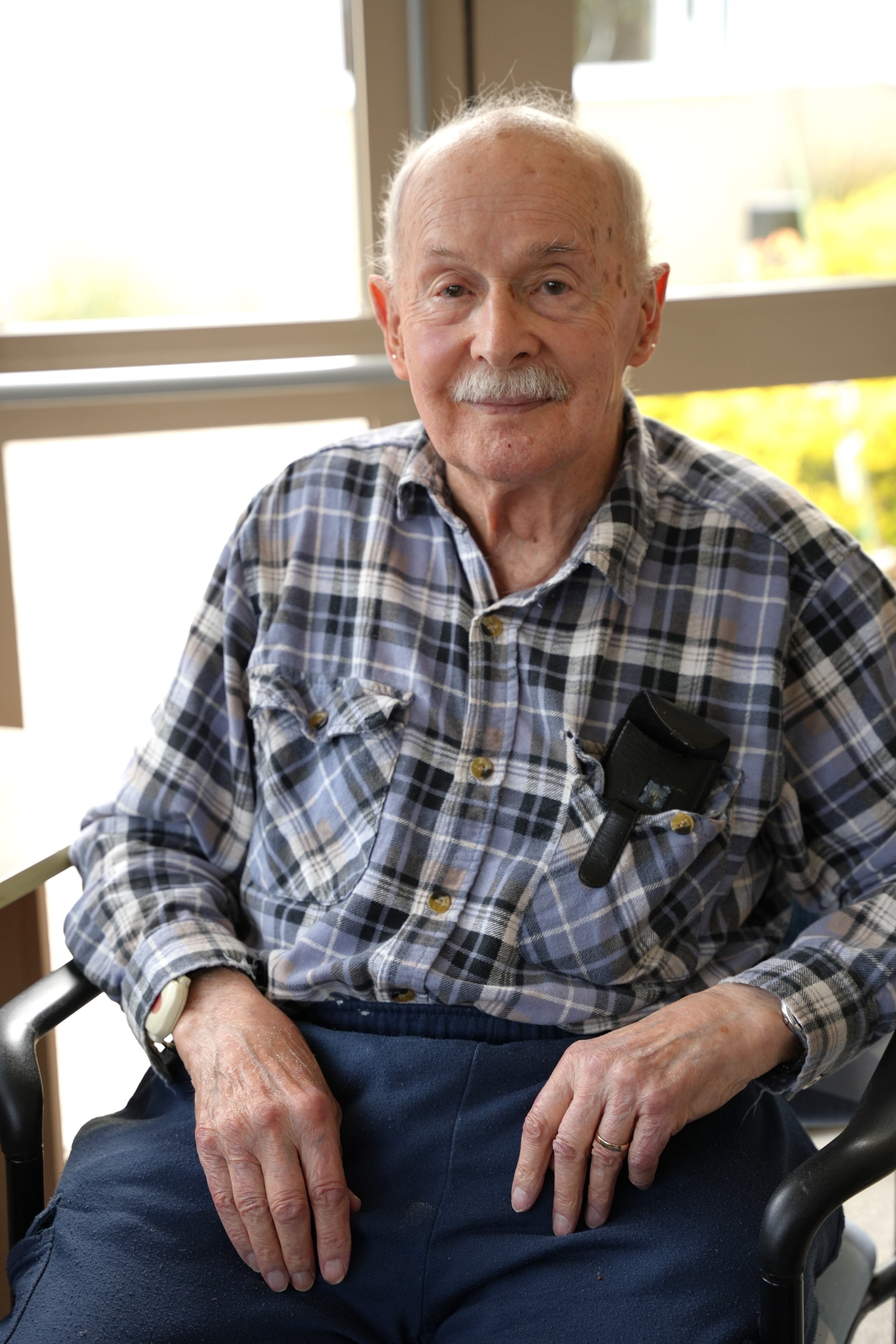At 16, he joined a fencing club in Southern Rhodesia, where he would compete against grown men in the Royal Air Force team. His other love was in music, during his high school years (1947-1952), he played the bugle in a cadet band and later the trumpet in a cadet brass band.

Brian would go on to study at Rhodes University. Unfortunately, there was no fencing club, so he established one with another student and became the coach. He taught foil to both men and women, and led the club to success in university competitions. In 1956, he was invited to compete in the Cape Province fencing titles, an experience he recalls vividly…
"In my final year at university, I received an invitation to the Cape Province fencing titles in Cape Town, 600 miles away. As poor students, we hitchhiked—it was safe in those days. I sent off my ten-shilling entry fee, packed my kit and backpack, and set off. I stayed with a fellow fencer I had met during intervarsity competitions. The journey was smooth—the real adventure was yet to come.
I had moderate success, placing fourth in foil and second in epee. Then my friend Jos suggested I enter the sabre competition since entries were low. I paid my fee and joined in. After the initial round, a three-way tie for first led to a fence-off. I threw myself full pelt into the match and, to my surprise, won the event I hadn’t even planned to enter! My reward? A large trophy filled with champagne, courtesy of Jos.
The return trip was even more eventful. I got a lift partway but was dropped off in the middle of nowhere as night fell. With no traffic, I had to sleep by the roadside. It was winter’s end but still cold, so I put on all my clothes, including my fencing gear, and settled in a ditch. At 3:00 AM, I woke up frozen and started walking through the wilds of Africa. If a leopard attacked, I planned to thrust my epee down its throat—thankfully, none appeared. I'd estimated I'd hiked 20 miles when finally, bliss! A lift going all the way, I regaled them with my tale of woe and was rewarded with a packet of biscuits. They very nicely dropped me off on my doorstep. The end of the hike, but not the end of the story."

Brian returned to Rhodesia to teach for seven years, continuing his fencing and competing internationally. With civil war looming in Rhodesia, Brian moved to Tasmania joining his parents, there he taught Latin at Taroona High School. However, as Latin faded out of the curriculum, he was asked to help in the music department and retrained as a music teacher. He would become the head of the music department, where they produced a fine concert band, that frequently performed in Hobart and won three eisteddfods. One of Brian’s best trumpet players, Andrew Evans, later became a professor of trumpet at the Sydney Conservatorium.
Alongside his teaching, Brian joined the Australian Army Reserve Band, playing cornet and later clarinet. During the September holidays, he rehearsed with Devonport players and mainland singers, touring Queenstown, Devonport, Launceston, and Hobart. He also composed a march performed during his second tour. In his spare time, he sketched fellow band members, filling four large albums. When bandmaster Ordnance Officer Ken Lee retired, Brian presented him with an album of sketches, these are now housed in the Anglesea Barracks Museum.
Hip surgery forced Brian’s retirement from the Army Reserve Band, but music and performance remained a major part of his life. He sang in choirs and performed in Gilbert and Sullivan operas (G&S), often alongside his wife, Caroline, whom he met on stage. Together, they performed in countless Messiah productions and G&S operas and presented two shortened versions aboard the ferry Cartela. One-half of the patrons enjoyed a champagne dinner while the other half watched the performance before swapping over.
The school band played G&S excerpts on the wharf, involving the audience in the experience. Brian also sang with the Tasmanian Song Company and wrote original settings for Joshua at Jericho and Battle Hymn of the Republic, the latter of which was performed with the Derwent Concert Band at Hobart's Last Night at the Proms for the new millennium. Other compositions included an orchestral work, Epolita, for the Derwent Symphony Orchestra, Psalm 100 for the school band, and An Irish Blessing for solo voice and choir.
His love of drama and fencing led him to choreograph stage fights for productions like Romeo and Juliet and Hamlet, and writing incidental music for stage productions. Brian contributed to film projects, choreographing fight scenes for Flash Gordon and a Zorro film promotion, in which he played the older Zorro while his son played the younger. Fencing remained a constant in Brian’s life. He won several foil competitions and held the Tasmanian sabre title for years.
In addition to music, Brian excelled in calligraphy, winning first and second prizes at the Hobart Show. Two of his pieces hang in the Hawthorn Village dining hall, and others decorate the walls of his room.
Even with his many creative pursuits, Brian always found time to teach his classes and run a music department. His legacy spans fencing, music, drama, and art—a life well lived, filled with remarkable experiences and lasting contributions that this story could only touch on.
